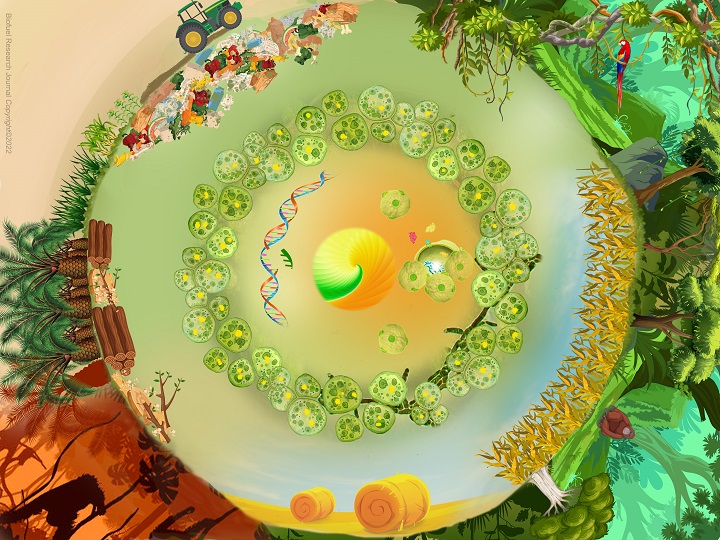

Join our Community on:
Biofuel Research Journal`s
Official Channel on WeChat
(in Mandarin Chinese)

Latest News
Biofuel Research Journal
has been accepted to be
indexed by Inspec!

"Inspec, produced by The
Institution of Engineering
and Technology, has been
the definitive engineering
and physics research database
for over 50 years"
Read more about Inspec on ClarivateTM
Biofuel Research Journal
has been accepted to be
indexed by Ei Compendex
(Engineering Village)!
![]()
Read more here!
Read the Editor`s Pick:
Biogas Collection here!
Biofuel Research Journal
is now indexed by ProQuest!

We are delighted to announce
.... Read more here!
Celebrating a year of growth
for Biofuel Research Journal!

This year marks a year of growth
.... Read more here!
|
On the Cover In the domain of sustainable agriculture, a groundbreaking study (DOI: 10.18331/BRJ2024.11.1.3) sheds light on enhanced micronutrient delivery and soil health. A team of German researchers has devised a novel method for producing manganese-enriched fertilizers, leveraging artificial humic substances (AHS). These synthetic materials, derived from biomass, replicate the beneficial attributes of natural humic substances. By integrating manganese directly into the AHS structure during its hydrothermal treatment, the researchers engineer amorphous, readily available fertilizer complexes that surpass conventional manganese salts. Moreover, alongside manganese, the utilization of AHS demonstrates an impressive capacity to augment iron transport, underscoring the broad potential of these materials for managing micronutrient transport. This innovation in fertilizer production resonates with the growing interest in AHS, recently acknowledged as a leading emerging technology by the International Union of Pure and Applied Chemistry (IUPAC). This pioneering approach envisions a future where the sustainable utilization of biomass via hydrothermal humification significantly enhances agricultural methodologies. Cover art by BiofuelResJ. ©2024. |

Biofuel Research Journal (BRJ) is a leading, peer-reviewed academic journal dedicated to publishing high-quality research on biofuels, bioproducts, and related biomass-derived materials and technologies. BRJ is an open-access online journal and completely free-of-charge, aiming to advance knowledge and understanding of sustainable energy solutions, environmental protection, and the circular economy through cutting-edge research and innovative applications. The journal welcomes original articles, review papers, case studies, short communications, and hypotheses in the following areas:
BRJ aims to foster interdisciplinary collaborations among researchers, engineers, scientists, policymakers, and industry experts to accelerate the adoption of sustainable energy solutions and foster a greener future. The journal is committed to maintaining the highest standards of peer review and editorial integrity, ensuring that only high-quality and impactful research is published.
Biofuel Research Journal is indexed in Scopus and Web of Science.
BRJ currently has no fees. Learn More.
Editor-in-Chief: Vijai Kumar Gupta
Pages 1999-2012
Keikhosro Karimi; Benyamin Khoshnevisan; Joeri F.M. Denayer
Pages 2013-2024
Alexander Volikov; Helen Schneider; Nadezda V. Tarakina; Nader Marzban; Markus Antonietti; Svitlana Filonenko
Pages 2025-2039
Mona Ghaslani; Reza Rezaee; Omid Aboubakri; Ehsan Sarlaki; Thomas Hoffmann; Afshin Maleki; Nader Marzban
Pages 2040-2064
Salauddin Al Azad; Meysam Madadi; Guojie Song; Chihe Sun; Fubao Sun